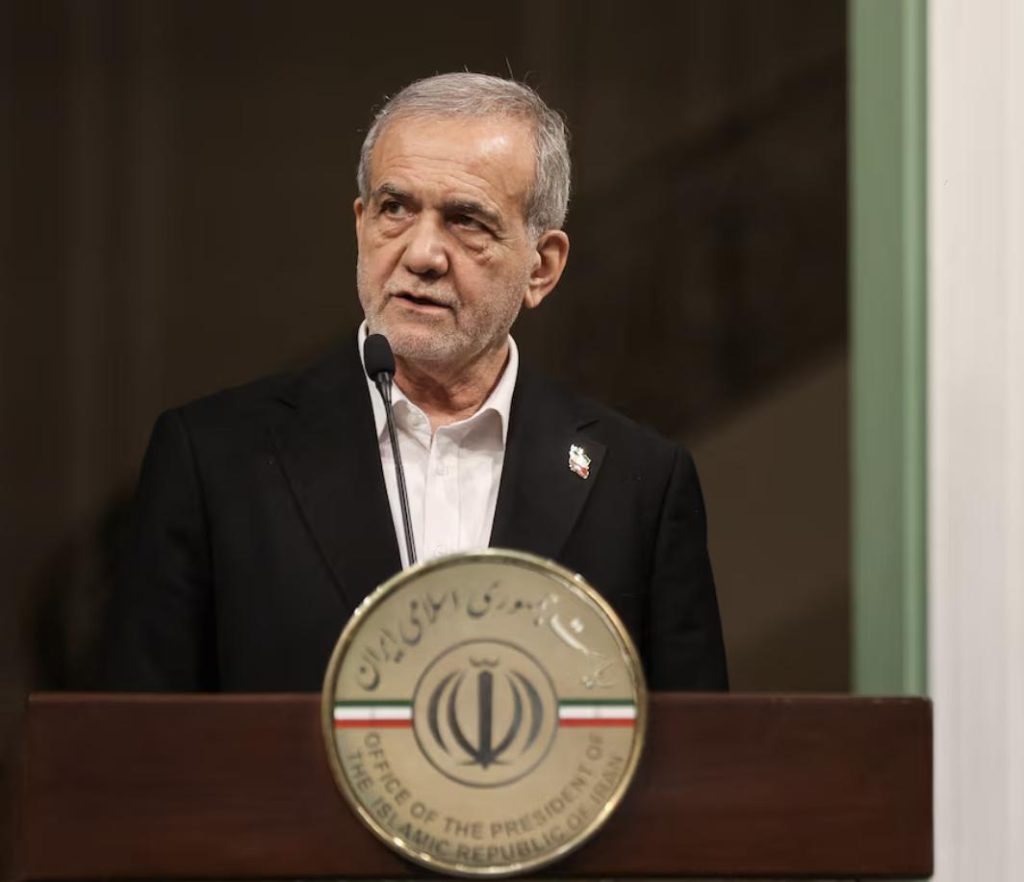
US & Israel want to divide our country: Iran Prez Pezeshkian
In a recent statement, Iranian President Masoud Pezeshkian has alleged that the United States and Israel are seeking to divide and destroy Iran. The statement, made on Friday, has sent shockwaves throughout the international community, with many calling for calm and diplomacy.
According to Pezeshkian, the two nations have been pursuing a strategy of destabilization and division from the very beginning of Iran’s Islamic Revolution in 1979. “From the first days of our revolution, enemies were seeking assassinations, coups, and the country’s division,” he said in a statement.
But despite the apparent threat, Pezeshkian was quick to emphasize that Iran does not seek war with either the US or Israel. Instead, the country is committed to defending its sovereignty and territorial integrity. “We do not want to fight, but we are not afraid of war either,” he stated.
This latest development in the long-standing feud between Iran and the West has left many wondering what lies behind the renewed tensions. For decades, the two nations have been involved in a complex and often contentious relationship, with each side accusing the other of aggressive behavior.
The US, in particular, has been a thorn in the side of Iran since the 1979 revolution, when Iranian students stormed the US embassy in Tehran and took 52 American diplomats hostage. The incident led to a breakdown in relations between the two nations, which has yet to be fully repaired.
In recent years, tensions have escalated further, with the US imposing harsh economic sanctions on Iran in response to its nuclear program and its support for regional militant groups. Iran, meanwhile, has responded by developing its own military capabilities, including ballistic missiles and advanced fighter jets.
Israel, too, has been a major player in the region, with its own interests often conflicting with those of Iran. The two nations have a long and complicated history, dating back to the days of the Shah of Iran, who was a key ally of Israel in the region.
Today, Israel views Iran as a major threat to its very existence, citing the country’s nuclear program and its support for militant groups in the region. Iran, meanwhile, sees Israel as a colonial power that seeks to dominate the Middle East.
Despite the apparent divisions, Pezeshkian’s statement has been met with a mixed reaction from the international community. Some have called for calm and diplomacy, while others have accused Iran of being provocative and aggressive.
The European Union, in a statement, called for restraint and dialogue, urging both sides to avoid “actions that could escalate tensions.” The United Nations Secretary-General, António Guterres, also weighed in, saying that the situation was “very fragile” and that all sides needed to exercise restraint.
In the meantime, Iran’s neighbors are bracing for the worst, with many fearing that the tensions could spill over into the region. The Gulf States, in particular, are on high alert, with their own security forces being put on standby in anticipation of an escalation.
As the situation continues to unfold, it remains to be seen what the future holds for Iran and its relations with the United States and Israel. One thing is clear, however: the stakes are higher than ever before, and the world is watching with bated breath.
Source:



